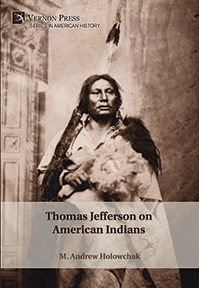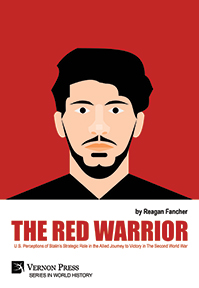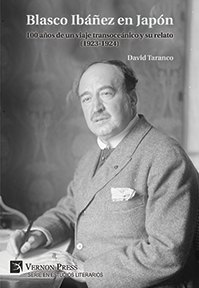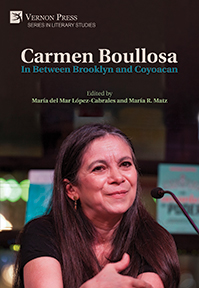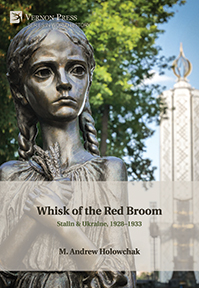Search
Browse
by Publication status
by Subject
Anthropology (26) Art (124) Business and Finance (26) Cognitive Science and Psychology (54) Communication and Journalism (45) Economics (62) Education (66) History (149) Human Geography (22) Interdisciplinary (42) Language and Linguistics (129) Law (16) Music Studies (18) Philosophy (157) Political Science and International Relations (103) Sociology (304) Statistics and Quantitative Methods (20)by Series
Series in Literary Studies (65) Series in Philosophy (59) Series in Education (51) Series in Sociology (42) Series in Politics (32) Series in World History (32) Bridging Languages and Scholarship (31) Series in Language and Linguistics (25) Cognitive Science and Psychology (20) Series in American History (20) Series in Philosophy of Religion (20) Series in Art (19) Critical Perspectives on Social Science (16) Series in Cinema and Culture (16) Curating and Interpreting Culture (15) Series in Critical Media Studies (14) Series on the History of Art (14) Series in Anthropology (13) Series in Business and Finance (13) Economics (13) Series in Music (12) Series in Communication (9) Series in Performing Arts (9) Philosophy of Personalism (8) Series in Law (8) Series in Economic Methodology (7) Series on Climate Change and Society (7) Women's Studies (7) Classics in Economics (6) Series in Economic Development (6) Philosophy of Forgiveness (5) Series in Built Environment (5) Series in Economic History (5) Series in Philosophy of Science (4) Series in Social Equality and Justice (4) Series on the History of Science (4) Serie En Estudios Literarios (3) Serie en Sociología (3) Series in Contemporary History (3) Series in Creative Writing Studies (3) Series in Design (3) The Interdisciplinary Built Environment (3) Serie en Comunicación y Medios (2) Serie en Historia (2) Series in Heritage Studies (2) Series in Innovation Studies (2) Series in Philosophy of Race (2) Serie en Ciencias Políticas (1) Serie en Entorno Construido (1) Serie en Estudios Culturales (1) Serie en Filosofía (1) Serie en Filosofía de la Ciencia (1) Serie en Música (1) Series in Classical Studies (1) Series in Economics of Technological Change (1) Series in Urban Studies (1)by Language
English Spanishby Author
Browsing with filters

Thomas Jefferson on American Indians
May 2024 / ISBN: 978-1-64889-105-2Availability: In stock
236pp. ¦ $77 £62 €72
Jefferson’s views on Indians were characterized by ambivalence. Jefferson both loved and hated Native Americans, because he loved Native Americans. Jefferson was, through his father Peter, exposed early on and directly, though likely infrequently, to mysterious but congenial Indigenes, and he came to respect profoundly their courage, physical endurance, artistry, integrity, and most importantly, their large love of liberty, even if they were “uncivilized.” So impressed by Indians culture was Jefferson that he made their nature and culture objects of study in his ‘Notes on Virginia.’ Though uncivilized, Indians showed marked signs of being readily civilizable. Thus, Jefferson, qua politician and philosopher, hoped that they would mix their blood with Whites and become part of what he saw as a great American “empire for liberty.” Miscegenation meant integration, willful or by force, into American culture and abandonment of Aboriginal ways and their radically different way of seeing the land upon which they lived, which Natives could only grudgingly accept. Was Jefferson’s Indian policy, though guided by true concern for their wellbeing, genocidal? This book ultimately aims to answer that question.
The Red Warrior: U.S. Perceptions of Stalin’s Strategic Role in the Allied Journey to Victory in The Second World War
Reagan Fancher, Texas Woman’s University
Availability: In stock
274pp. ¦ $81 £65 €76
Through U.S. President Franklin D. Roosevelt’s Lend-Lease program, American leaders sought to keep Joseph Stalin’s Red Army in the field and fighting Adolf Hitler’s forces in the Second World War from 1941 forward. Delivered by the Anglo-American Arctic naval convoys, overland through the Iranian deserts and mountains, and through the skies from Alaska to Siberia, this much-needed material aid helped Stalin’s Red Army to continue fighting and thereby prevented a separate peace with Hitler’s Germany and a mechanized repeat of the First World War’s Brest-Litovsk fiasco. Yet Roosevelt and other U.S. officials, due to their severe underestimation of Stalin’s character and his rigid and fanatical devotion to exporting Communism at gunpoint, gambled incorrectly that they could win the Soviet premier’s heart and mind through several excessive wartime aid gestures, including the furnishing of atomic bomb materials to the Soviet regime. By 1945, American leaders had succeeded in their strategic goal of keeping Stalin and his Red Army in the war and hastening victory but failed in their efforts to purchase the Soviet premier’s goodwill and commitment to postwar peace, heralding the global Cold War, and setting the stage for later U.S. martial aid programs to those resisting aggression abroad. In addition to its primary focus on the American leadership’s perceptions of Stalin’s strategic importance to the Allied war effort in the Second World War, this work also includes a detailed assessment of Roosevelt’s Soviet Lend-Lease program alongside U.S. President Ronald Reagan’s later support for the Afghan Islamic guerrillas resisting Soviet occupation during the Soviet-Afghan War of the 1980s and a comparison of both martial aid programs with Washington’s recent revival of Lend-Lease aid for the Ukrainian war effort. It offers today’s American leaders and policymakers a chance to consult the lessons of history and apply them in the present.
Blasco Ibáñez en Japón: 100 años de un viaje transoceánico y su relato (1923-1924)
David Taranco, University Doshisha, Kioto, Japan
Availability: In stock
352pp. ¦ $86 £69 €80
En 1923, el escritor español Vicente Blasco Ibáñez, por entonces una de las principales figuras de la literatura mundial gracias el éxito de su novela 'Los cuatro jinetes del Apocalipsis', se embarcó en un crucero de lujo para circunnavegar el planeta. Fruto de dicha aventura es el fascinante relato de viajes 'La vuelta al mundo de un novelista', publicado en tres volúmenes entre 1924 y 1925. Dentro de dicho recuento, Japón ocupa un espacio preponderante, tanto en extensión como en implicación descriptiva y analítica por parte del autor. Un siglo después, este libro expone las claves del protagonismo de Japón en el relato de Blasco Ibáñez y ofrece una edición anotada de los capítulos que el escritor dedicó a su recorrido por tierras japonesas. El estudio previo del personaje y de la concepción del viaje, así como las glosas a pie de página de la edición anotada, permitirán al público lector comprender mejor el trasfondo de la travesía transoceánica, descifrar referencias culturales e históricas y disfrutar aún más la lectura del entretenido e instructivo cuaderno de bitácoras. Además, el personal investigador interesado en el desarrollo del hispanismo en Japón encontrará en este libro una visión novedosa del nacimiento y la evolución del estudio de la lengua y la literatura españolas y de las culturas hispánicas en el país del sol naciente y descubrirá la extraordinaria aportación de Blasco Ibáñez en este campo.
Carmen Boullosa: In Between Brooklyn and Coyoacan
Edited by
María del Mar López-Cabrales, Colorado State University
and María Rosario Matz, University of Massachusetts Lowell
Availability: In stock
174pp. ¦ $82 £66 €77
Focusing on the works of Mexican writer Carmen Boullosa for the English reader, this volume provides access to a critical analysis of Boullosa’s writings. Her daily writing has produced an enormous and varied literary corpus that includes narrative, theater, and poetry, in addition to her work in television. This volume is divided into three different segments. The initial part is composed of six essays that analyze Boullosa’s narrative and theatrical works. In these essays contributors evaluate and analyze Boullosa’s literary production, covering many of her novels, including 'Antes' (1989), 'Llanto: novelas imposibles' (1992), 'La Milagrosa' (1993) 'Cielos de la Tierra' (1997), 'La otra mano de Lepanto' (2005), 'La novela perfecta' (2006), 'El complot de los Románticos' (2009), 'Cuando me volví mortal' (2010), 'Las paredes hablan' (2012), 'Texas' (2014), and 'El libro de Ana' (2019) as well as her 'Teatro herético' (1987). By analyzing her literary corpus, contributors explore how she reshapes historical narratives and offers thought-provoking commentaries on our modern society and its problems. Boullosa’s writings invite an in-depth analysis due to their rich complexity and explorations of various themes, therefore this volume presents how her work has a significant social impact, prompting discussions on the topics of gender, power, history, social inequality, and cultural diversity while encouraging critical thinking and empathy. These critical essays are followed by an interview with the author. We decided to also include the Spanish version of this interview for those able to read it. Boullosa’s essay, 'Épica mía/ Mi épica (My Epic)' concludes this volume. When reading this essay, we suggest to the reader to keep in mind how often her works provide a voice to characters for whom History refused to grant one. This volume will provide its reader with a key to discovering the many layers present in Boullosa’s writing.
Whisk of the Red Broom: Stalin & Ukraine, 1928-1933
April 2024 / ISBN: 978-1-64889-860-0Availability: In stock
262pp. ¦ $72 £58 €67
Once Joseph Stalin took the lead of the Soviet Bolshevists after the death of Vladimir Lenin, he quickly turned away from Lenin’s New Economic Policy, with its many concessions to capitalism, to a policy of one-country socialism, driven by his first Five Year Plan (1928) and a plan that other Bolsheviks like Lenin and Trotsky thought impossible. That shift, radical, forced Stalin to “urbanize” the USSR’s vast rural areas—that is, to impose a factory-like model on the Soviet countryside to maximize its efficiency. That required collectivizing the numerous Soviet farms—making large farms of the numerous small farms. Ukraine was to be the model republic due to its vastness and black, fertile lands. Not only were the republics to be collectivized, they were also to be Russified for the sake of model efficiency and centralization of control. And so, while Stalin, early in his political life, preached respect for the cultural diversity of its many republics and the right of secession of any republic, the need to collectivize the Soviet farms for the sake of one-country socialism demanded compliance. Ukrainian peasant-farmers were non-compliant, for they readily saw that the State was asking them for everything and giving back nothing but the pledge of efficient farms to benefit the State, and non-compliance forced Stalin’s authoritarian hand. He imposed laws that brutally punished non-compliant peasants, called “kulaks.” The plan was dekulakization. The intransigents were dispossessed of their property, alienated from other villagers, exiled, and exterminated. The result in Ukraine was the gross inefficiency of both collective and individual farms. That led to intolerance of Ukrainian culture and theft of Ukrainian grain, and even all other findable foodstuffs, to punish Ukrainians. The end was a great famine in 1932 and 1933 in which some four million Ukrainians died. Did Stalin believe that he could urbanize the Soviet countryside? Did Stalin think that socialism could take root in the backwater Soviet Union without the aid of Western succor? Did Stalin hate Ukrainians because many pressed for a cultural identity separate from that of Russia? Had Stalin’s plan of dekulakization from the beginning been a policy of political genocide? Those are some of the many questions I aim to answer in this book. I focus much on Stalin’s writings in the efforts to ascertain his mindset as a dictator.

